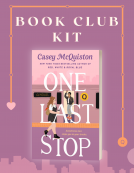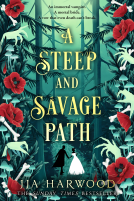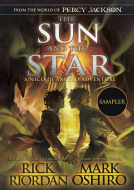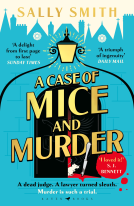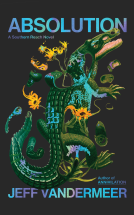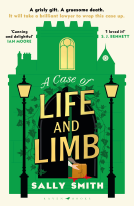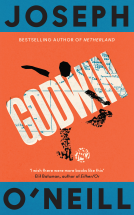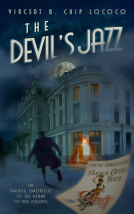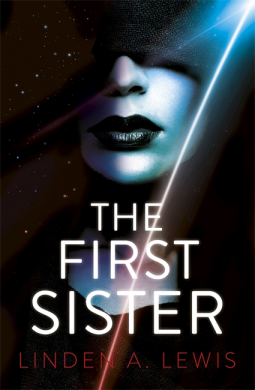
The First Sister
An epic space opera
by Linden A. Lewis
This title was previously available on NetGalley and is now archived.
Send NetGalley books directly to your Kindle or Kindle app
1
To read on a Kindle or Kindle app, please add kindle@netgalley.com as an approved email address to receive files in your Amazon account. Click here for step-by-step instructions.
2
Also find your Kindle email address within your Amazon account, and enter it here.
Pub Date 4 Aug 2020 | Archive Date 11 Aug 2020
Talking about this book? Use #TheFirstSister #NetGalley. More hashtag tips!
Description
'I couldn't put it down' R.F. Kuang, author of The Poppy War
FIRST SISTER HAS NO NAME, AND NO VOICE.
Forced to travel the stars alongside the Gean soldiers of Earth and Mars, she lacks control over her own destiny. Until an enigmatic, and secretive, new captain - Saito Ren - joins her ship and opens her eyes to a dangerous new path.
LITO VAL LUCIUS HAS NO FAITH, AND NO LOYALTY.
An elite Icarii soldier of Venus, he was thrown into disgrace after the sudden disappearance of his partner, Hiro. Then Hiro is discovered alive, and a traitor, and Lito is offered a shot at redemption: but only if he hunts down and kills his former partner in cold blood.
As the war between the Geans and the Icarii reaches a head, Lito and the First Sister must decide what - and whom - they are willing to sacrifice in the name of duty, or for love.
'Debut of the month' Library Journal
Available Editions
| EDITION | Other Format |
| ISBN | 9781529386905 |
| PRICE | £14.99 (GBP) |
| PAGES | 352 |
Featured Reviews
‘The First Sister’ is a book that really highlights the importance of a good ending. The twist at the end transforms a good, solid science fiction debut into a brilliantly clever book with layers upon layers of hidden meaning. I’m already looking forward to seeing where Linden A Lewis takes these characters next.
The story alternates between three points of view – the titular First Sister of the Gaens, Lito sol Lucius, a warrior in the Icarii military, and the warrior’s ex-partner, Hiro val Akira, now apparently turned traitor. The latter’s perspective is entirely in the form of audio recordings sent after their defection, in which Hiro tries to explain to Lito why they defected. These are initially the weakest section of the book, but improve as it goes on – and in hindsight they were necessary to make the story as great as it is.
The Gaens are a strongly religious sect formed of the humans from Earth and Mars. The head of their religion is the Mother, she who communicates with the goddess. The Mother sends disciplines, named Sisters, to every Gaen holding, be it planet, moon, or spaceship. The sisters are ranked, with the most senior sister on every holding named the First Sister. The First Sister we follow is on the spaceship Juno. We join her as she has manoeuvred to leave the Juno with the commanding officer, joining him in retirement on Mars – however, before she can do so, the spaceship is taken over by Commander Saito Ren, leaving her trapped. She must quickly gain Saito Ren’s favour to retain her rank as First Sister – but her fellow Sisters want the perks of being First Sister too, and the supervising Aunt, Marshae, has a task for the First Sister which could ruin her forever. Sisters cannot speak – only communicate in a sign-language known only to members of the order – and it’s fascinating how this shapes First Sister’s interactions. She spends the vast majority of the novel in way over her head, but she gradually grows in confidence and its amazing seeing how she develops. Linden A Lewis doesn’t shy away from how traumatic her life in the order has been – a distinct theme of the book – and how this has shaped her personality and thought processes. I’ll be very interested to see how she develops further in the sequel.
The Icarii consider themselves superior to the Gaens and Asters, the main other races, with a strong emphasis on scientific and military dominance. They are formed of the humans who colonised Mercury and Venus, finding a unique element which allowed massive technological innovation. Lito sol Lucius was born to a lower class family but won a highly prestigious scholarship to join the Icarii Special Forces. He feels pressured to prove himself and avoid falling back down the ladder – but after surviving a disastrous mission on the moon of Ceres, he’s one step away from disgrace. His latest mission is one that he completely detests – but he has no choice but to accept it for the safety of himself – and more importantly, the safety of his younger sister. Lito is the complete counterpoint to First Sister – where she is cerebral, spending all her time in thoughtful contemplation, Lito is a whirlwind of action, preferring the simplicity of battle to the complexity of conversation and politics. However, he is also a very emotional character, struggling to recover from the loss of his partner Hiro – and more than that, the knowledge that Hiro was a traitor. I felt for Lito just as much as I felt for First Sister – they both lack any real freedom to make their own decisions, forced to work for a regime they were increasingly disillusioned from.
Hiro is a more interesting character than Lito, and in a way it’s a shame that we only get their story through recordings. The middle child of the Val Akira’s, the scientific leaders of the Icarii, Hiro has never been what their father wanted. They finally find somewhere they feel that they belong – fighting alongside Lito as dagger and rapier – but their position as a Val Akira gives them knowledge that Lito isn’t privy to. I don’t want to give any spoilers, but Hiro’s story is the most tragic of them all. I hope that we get more time with Hiro in subsequent books because they’re a fascinating, strong character with an intriguing backstory not utilised to their full potential here.
The worldbuilding is gorgeous – I loved the premise of two factions of humans who separated to such an extend that they considered themselves almost separate species, and a third faction who literally became a separate species through extensive genetic modification. It’s a brutal world, and that isn’t glossed over, but fascinating to read about. Lewis includes great LGBTQIAP+ rep including non-binary characters and attraction to multiple genders, and the world isn’t Western-centric – the main languages are now English, Spanish, and Chinese, and Hiro and Saito are both of Japanese descent. Lito has Spanish roots. Far future science fiction can be difficult to make realistic, but Lewis does an excellent job, including incredible technology with vague plausibility (even if the element discovered by the Icarii does sound a little like it came out of a Marvel comic).
Why is this four rather than five stars? It starts slow, needing time to get going. There is a fair amount of exposition needed to paint a picture of this very different future world, and while Lewis handles this well, it can still be tedious. Hiro’s initial sections – flashbacks to distant past events – don’t feel entirely relevant, and whilst they do later turn out to be, they’re still a little jarring at the time. However, for a debut novel, this is incredibly accomplished, and the twist at the end is almost good enough to make up for everything else – it’s one of the best twists I’ve ever read.
Overall, this is a great science-fiction debut of incredible scope that should appeal to all fans of the genre. I’m looking forward to seeing where is goes next. Highly recommended.
The First Sister is the space opera epic I never knew I needed. The epic of Red Rising, the commentary of The Handmaid's Tale with a lot of scandalous exploits peppered in and dramatic plot twists - it's a winning combination. The world-building felt very vivid. Different races, cities, tendencies, and attitudes were portrayed so masterfully it felt real. There was tension between members of each faction, yet their chemistry was electric and all the multiple character arcs in the book converge in one breathtaking climax, unfolding in a beautiful chaos. The characters themselves are also a gripping, diverse cast with each POV not one to miss.
If anything, my only gripe with this book is how I found The Sisterhood's purpose and theocratic foundations to be slightly under-developed but I suppose it will be a point for more exploration as the sequel takes a deeper dive to the intrigue of the world that has been established here.
It is a sharp, biting critique of military dictatorship, oppressive theocracy, and prejudices that pave way to enabling the oppression and exploitation of minorities - gone unnoticed for long. It isn't afraid to ask the hard questions: how far are we willing to overlook the suffering of others' when we benefit from it? Do we even care about doing what's right? Or do we only care when we are forced to fully confront the atrocities of the system we've benefited from or when we lose our privileges? How many people must suffer, and how severe must the "evidence" be before we say enough is enough? The First Sister is not an easy book, but it soars exactly because of it. And yet, The First Sister also gives a glimmer of hope in a world that has become so bleak. That maybe this time, with the right people, a better world with peace is possible.
 Reviewer 698154
Reviewer 698154
This book has everything I've ever wanted!
I don't even know where to begin with how much I loved this book.
To start, it is incredibly fast paced and exciting, once I picked it up I was unable to put it down! The world that this story takes place in is incredibly written, the world building and backstories of the characters leave nothing to be desired and gives the reader a sense of familiarity with the characters.
I absolutely adored Lito, he is quite possibly my favorite character in this book. I loved his relationship to Kita and how loving and supportive they were of one another. I also loved the found family trope; characters who become closer than family are something that I cherish greatly.
The rest of the cast of characters are equally wonderful. I loved the representation and how diverse the characters are. We have a f/f relationship, a character with a visible disability, a non-binary character that uses they/them pronouns among other things.
As aforementioned, the story is incredibly exciting. The plot is amazingly written and thought out and I found myself audibly gasping and screaming in frustration at parts.
In conclusion: this book deserves all of the stars and I hope it receives the hype it deserves once it is released! will definitely be buying myself a finished copy.
 Jessica J, Reviewer
Jessica J, Reviewer
The Handmaid's Tale, Red Rising, and Ancillary Justice are some lofty comparisons to put on a book's blurb, but I was pleasantly surprised to find them apt (in levels of engagement at least, if not always in terms of plot or subject matter). Just to add to the pile of high expectations, I also got similar vibes to A Memory Called Empire at parts.
However, this is quite a different book from all of the above - the politics are less intricately obsessed upon, and the world building was also perhaps less deep than in some of the above examples. I found this to help the characters be able to develop more fully though. I didn't feel out of my depth, even when the world was first being introduced (which, despite reading a lot of SFF, I quite often find to be an issue). This could be because we are so thoroughly in the POV character's heads - the rest of the world isn't the focus here, no matter how widespanning events taking place are.
I definitely found myself preferring some POV characters to others - but as the book went on, I really warmed to them all. Particularly in the case of Lito and Hiro, they add depth to each other - Hiro's chapter at first sometimes felt like a device for extra exposition, but ended up giving real insight into them both, and the world at large. I was actively annoyed every time I had to put this book down.
I read a review where the reviewer downgraded their rating by a star because of the ending, and I can see where they're coming from - I realise its setting up for the rest of the series, but the conclusion didn't feel as satisfying as it could have been, and almost seemed rushed somehow. That said, I enjoyed the rest of the book so much that I'm keeping the five star rating - and eagerly awaiting the next book!
 Laura F, Bookseller
Laura F, Bookseller
Wow!! Such an amazing book!! I was hooked from the start and loved every minute of it. I can not wait to get my goldsboro edition
4.5 stars! Phheewww I'm on a roll of incredible sci-fi right now, and The First Sister was no exception. This is a dark and epic tale of war across the solar system, following three main protagonists on opposite sides of the war as they try to fight for control over their own bodies.
The First Sister is a story of bodily autonomy, or rather, the story of what happens when bodily autonomy is removed, when people have no control over what happens to them and what happens when they fight back. We follow three individuals on opposite sides of the war:
- First Sister: a priestess of the Sisterhood serving on the Juno, a warship. As a priestess, she is there to provide distraction to the soldiers, be that hearing their confessions or providing them with sex to prevent distraction whilst they do their duties. Her voice was taken from her as a child, to prevent her ever spilling the secrets of the captain of her ship. When the Juno gets a new Captain, war hero Saito Ren, First Sister is asked to gain her trust and spy on her for the Sisterhood, who thinks she is a traitor.
- Lito sol Lucius: on the opposite side of the war from First Sister is Lito, a duelist who has recently recovered from wounds gained in the fall of Ceres, and for which he is blamed. He is ordered to return to Ceres, kill the Mother, the head of the Sisterhood, and kill his traitorous ex-partner, Hiro.
- Hiro: for Hiro's POV, we get short clips from a recorded message they sent to Lito, explaining how they betrayed their Empire. For as they explain from the start of the recording, they are guilty and they betrayed the Icaari.
These three each follow very different, exciting plots that all combine in one last final showdown on Ceres. Whilst each of these POVs were interesting on their own, I was particularly in love with that of First Sister. There is something so incredibly powerful about this POV from a person who cannot speak, so dialogue instantly becomes not a tool that the author can use. And I just loved the more introspective nature of First Sisters POV that therefore happened. Forced into the Sisterhood, her POV provides lots of insight into this religious powerhouse and the dark insides of the religion. So seeing her grow to become a person who gains control over her body after all these years in service to the awful Sisterhood was so powerful.
I did love her POV a lot more than Lito's. I thought his a little detached and I found it more difficult to get attached to him as a character, which is why this book didn't get a full 5 stars. But then comparing that to Hiro, who despite having the smallest part, just small extracts from their recordings, got so much personality through. I loved them. The way the Icaari have destroyed Hiro's bodily autonomy is truly horrific, it's so shocking and so disgusting and I was blown away when we first read this part. This is a world with such horrors in it, where a few powerful individuals hold the power and control over millions, where the lives of the many are used and discarded as a tool for the few powerful people. But it's also a story about those who refuse to be used, who refuse to let the powerful discard them like nothing, and what happens when those few individuals decide to fight back. And it's spectacular.
As a short side note, Lewis is another author going onto my list of authors who write epic battle scenes. This is something I struggle with as a writer so I'm always hugely impressed when authors can do it so well. These battles were so fun and filled with really badass technology, and this lightened the load of a book discussing some really dark issues surrounding bodily autonomy.
The world was just as diverse as I'd hoped, pretty much everyone is queer. Between nonbinary Hiro, Saito Ren and First Sister's relationship, we're full of diverse queer characters. I really loved the soft slow development of the relationship between Ren and First Sister. I just love SFF books that also have brilliantly queer romances that impact the story, so this was just perfect.
Also kudos to Lewis because there were so many twists at the end and I guessed NONE OF THEM. It was such a moment of shock and disbelief and omg OF COURSE this all makes sense I love it?!?
It's hard to talk too much about this book without giving spoilers, so all I'll say is I really liked this one. There's a lot going on, and a lot of difficult issues being discussed, but this is paired with lots of epic battles and some very cool tech, so it pretty much combines the best two things about SciFi!
This is a future classic, I can’t believe it’s a debut even it was just perfect to me. The writing and world building in this are spectacular, pure art and it just makes the book the perfection it is. I don’t think I’ve read a Science Fiction book of this class or this brilliant in a very long time. There is wonderful representation and diversity , amazing full developed characters, no black and white here, fully complex Characterisation. It’s addictive, fast paced reading and I’m so glad I’m part of Goldsboro’s GSFF club because I can’t wait for my special copy even more now.
Overall, an Amazing debut And just a wonderful piece of science fiction.
Thanks to netgalley and the publisher for a free copy for an honest opinion
 Librarian 431790
Librarian 431790
It's a brilliant story that kept me hooked till the last page. Great world building and characters, an excellent plot.
The author is a talented storyteller and I loved this book.
I look forward to reading other books by this author.
It's highly recommended.
Many thanks to the publisher and Netgalley for this ARC, all opinions are mine.
Readers who liked this book also liked:
Rick Riordan; Mark Oshiro
Children's Fiction, LGBTQIA, Teens & YA
Keith Martin; Konstantinos Mersinas; Guido Schmitz; Jassim Happa
Business, Leadership, Finance, Computers & Technology, Reference
Vincent B. "Chip" LoCoco
Historical Fiction, Horror, Mystery & Thrillers
